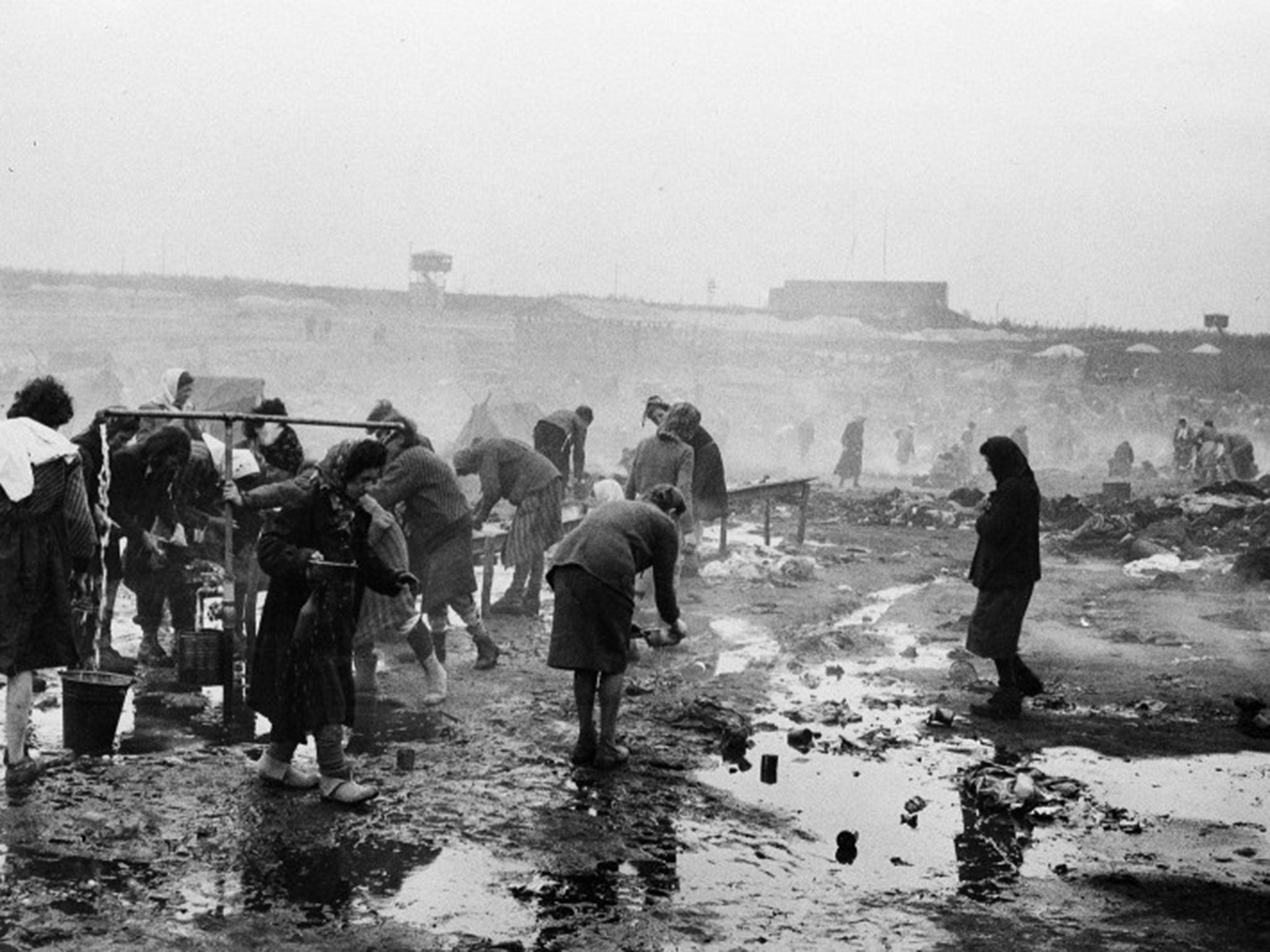Cannibalism 'rampant' at Nazi concentration camp, new documents reveal
'At night you killed or were killed'

The only British survivor found at the Bergen-Belsen concentration camp at the end of the Second World War detailed in newly-released documents how victims of Nazi atrocities had resorted to cannibalism to stay alive.
Harold Le Druillenec said that he spent all his time at Belsen heaving bodies into graves in a graphic account recounting the horrors that he had seen while surviving three concentration camps. More than 70,000 people died at Bergen-Belsen in 1941-45.
He was arrested in Jersey the day before D-Day in 1944 for helping his sister to harbour an escaped Russian prisoner-of-war and for non-cooperation with German occupying forces in the Channel Islands. He went on to give evidence at the Belsen trials after the war at which dozens of SS men and women were convicted for their roles in crimes at the camp.
"I survived three concentration camps by a lot of luck and the ability to 'live outside the carcase'. I retain this trait,” Mr Le Druillenec wrote in his note released today by the National Archives in which he sought compensation for his disability.
He said there was no food, water and sleep was impossible at Belsen, the worst of the three camps where he was held.
He wrote: "All my time here was spent in heaving dead bodies into the mass graves kindly dug for us by 'outside workers' for we no longer had the strength for that type of work which, fortunately, must have been observed by the camp authorities.

"Jungle law reigned among the prisoners; at night you killed or were killed; by day cannibalism was rampant.
"The bulk of Auschwitz had been transferred to Belsen when I arrived and it was here that I heard the expression 'there is only one way out of here - through the chimney!' (crematorium).
He was freed after 10 months' imprisonment, during which he lost more than half his body weight, and spent almost a year recovering from the dysentery, scabies, malnutrition and septicaemia that he suffered.
The Foreign Office eventually agreed to pay him compensation, awarding him £1,835 - around £30,000 today - for the time he spent imprisoned and his disabilities, which were deemed to be "less than 50%".
Bookmark popover
Removed from bookmarks